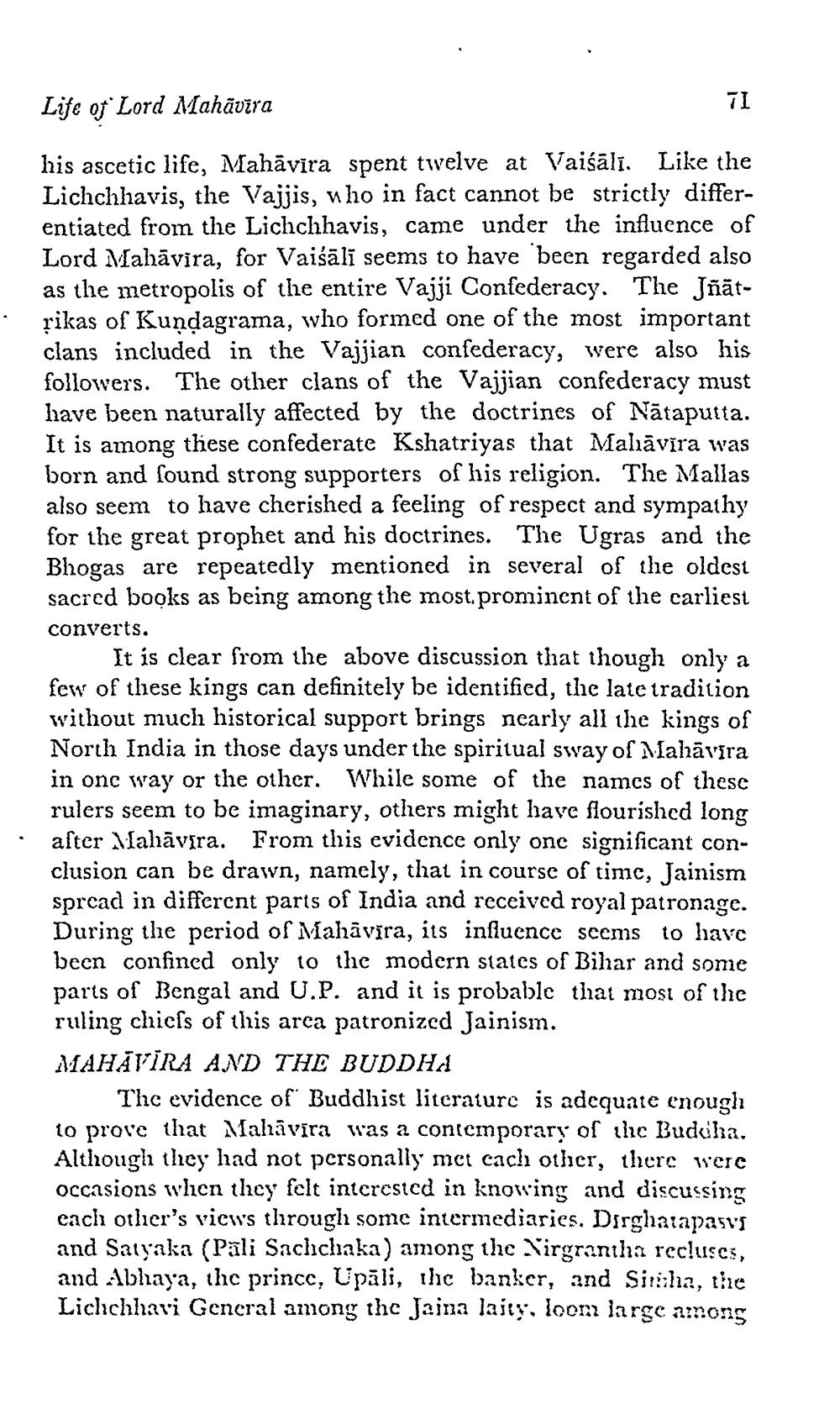________________
Life of Lord Mahāvīra
71
his ascetic life, Mahāvīra spent twelve at Vaiśālī. Like the Lichchhavis, the Vajjis, who in fact cannot be strictly differentiated from the Lichchhavis, came under the influence of Lord Mahāvira, for Vaiśālī seems to have been regarded also as the metropolis of the entire Vajji Confederacy. The Jñātsikas of Kundagrama, who formed one of the most important clans included in the Vajjian confederacy, were also his followers. The other clans of the Vajjian confederacy must have been naturally affected by the doctrines of Nātaputta. It is among these confederate Kshatriyas that Mallāvīra was born and sound strong supporters of his religion. The Mallas also seem to have cherished a feeling of respect and sympathy for the great prophet and his doctrines. The Ugras and the Bhogas are repeatedly mentioned in several of the oldest sacred books as being among the most prominent of the carliest converts.
It is clear from the above discussion that though only a few of these kings can definitely be identified, the late tradition without much historical support brings nearly all the kings of North India in those days under the spiritual sway of Mahāvira in one way or the other. While some of the names of these rulers seem to be imaginary, others might have flourished long after Valāvīra. From this evidence only one significant conclusion can be drawn, namely, that in course of time, Jainism spread in different parts of India and received royal patronage. During the period of Mahāvira, its influence seems to have been confined only to the modern states of Bihar and some parts of Bengal and U.P. and it is probable that most of the ruling chicss of this area patronized Jainism. MAHĀVĪRA AND THE BUDDHA
The evidence of Buddhist literature is adequate enough to prove that Mahavira was a contemporary of the Buddha, Althouglı they had not personally met cach other, there were occasions wlien they felt interested in knowing and discussing each otlıcr's views through some intermediaries. Dirgharapasus and Saryaka (Pali Sachchaka) among the Virgraniha recluses, and Abhaya, the prince, Upāli, the banker, and Siruha, the Lichchhavi General among the Jaina laily, loom large among




